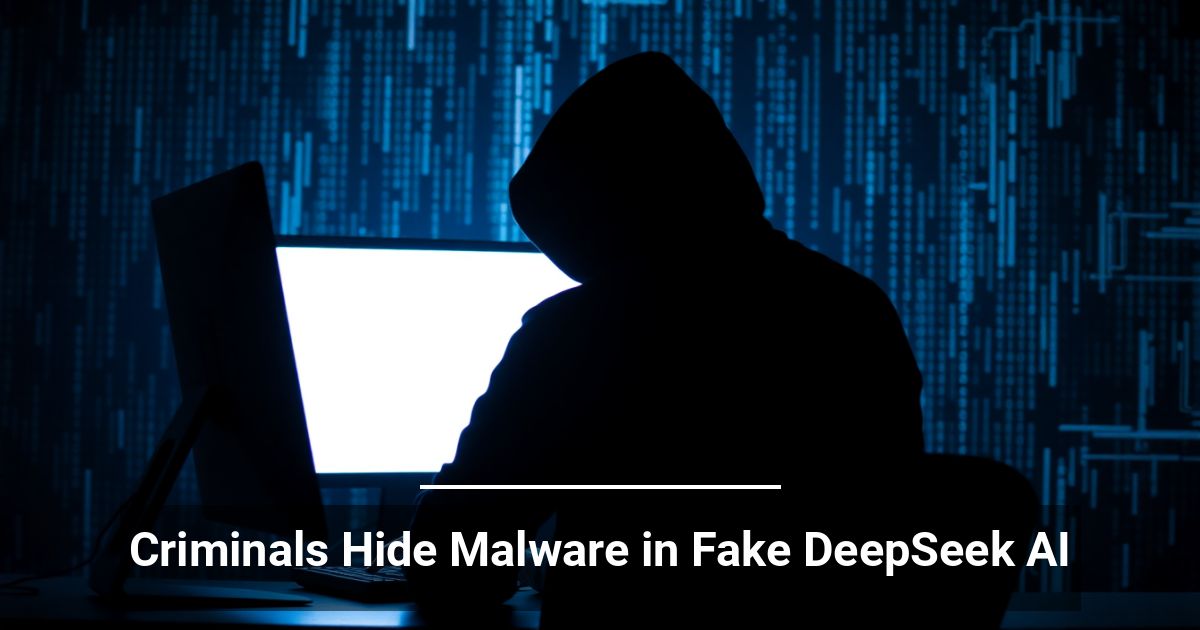 Cybercriminals will take full advantage of any possible security weakness your business has to launch their attacks. That’s certainly the case with their latest trick, which exploits the hype around a rising star in the AI world – DeepSeek. As Kaspersky experts recently reported, hackers have been luring unsuspecting victims into downloading malware on fake DeepSeek AI pages, and businesses are at risk.
Cybercriminals will take full advantage of any possible security weakness your business has to launch their attacks. That’s certainly the case with their latest trick, which exploits the hype around a rising star in the AI world – DeepSeek. As Kaspersky experts recently reported, hackers have been luring unsuspecting victims into downloading malware on fake DeepSeek AI pages, and businesses are at risk.
The Basics of Sophisticated Geofencing-Based Attacks
These attacks are nothing new. Hackers set up fake websites that look nearly identical to DeepSeek’s official page and get people to click on malware. However, what makes this slew of cyberattacks a little different is that they don’t always display malicious content – they analyze the visitor’s IP address and adjust what they show based on location.
That means security analysts and researchers might only see harmless content. At the same time, targeted users get hit with malware in fake DeepSeek AI downloads. These criminals also use compromised social media accounts, especially on X (formerly Twitter), to spread links to these fake websites. From there, coordinated bots amplify these posts to the right geo-targets, making them seem more legitimate.
The result? A well-orchestrated trap that business owners and their employees fall into before they even realize what’s happening!
Why These Attacks Are Particularly Dangerous for Businesses
The malware in fake DeepSeek AI downloads takes several forms, as several groups launch their unique attacks and distribute different codes. So far, security researchers have discovered:
- Python-based stealer malware: Steals scripts written in Python to collect login credentials and more.
- Malicious PowerShell scripts: Accesses computers remotely.
Malware in fake DeepSeek AI is exceptionally hard to detect, so it isn’t surprising that many businesses aren’t yet aware of the game. The campaigns appear polished and professional, unlike the poorly written posts or emails of former phishing attacks. The geofencing technique of changing content based on the visitor’s location also means that cybercriminals easily stay off security researchers’ radars, so nobody shuts them down.
Stop DeepSeek Malware From Infiltrating Your Business
Despite the sophisticated setup, you don’t have to be a cybersecurity expert to avoid these scams. Awareness can keep the attacks at bay as you:
- Double-check URLs: Don’t click any AI-related link without knowing where it leads—type in the official website instead of clicking.
- Exercise caution with social media promotions: A post with many likes and shares doesn’t demonstrate trustworthiness. If there’s hype around a new AI tool, verify the source before downloading anything.
- Keep security software updated: A good antivirus program will stop malicious downloads before they cause damage.
- Educate employees: Regularly update your employees about this scam and other cybersecurity threats to safeguard your business.
AI is changing the business world and giving cybercriminals new ways to trick you and your employees. Malware in fake DeepSeek AI web pages is just one tactic, so before you download that exciting new AI tool, verify it. In the digital world, skepticism can save your business a lot of trouble.



